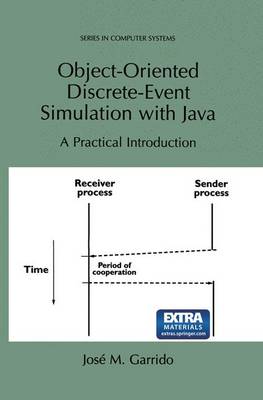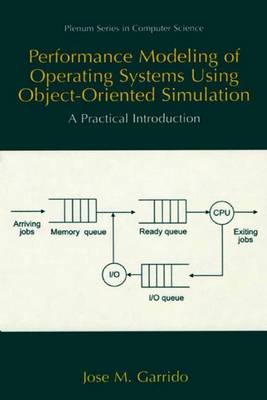Series in Computer Science
2 total works
Researches and developers of simulation models state that the Java program ming language presents a unique and significant opportunity for important changes in the way we develop simulation models today. The most important characteristics of the Java language that are advantageous for simulation are its multi-threading capabilities, its facilities for executing programs across the Web, and its graphics facilities. It is feasible to develop compatible and reusable simulation components that will facilitate the construction of newer and more complex models. This is possible with Java development environments. Another important trend that begun very recently is web-based simulation, i.e., and the execution of simulation models using Internet browser software. This book introduces the application of the Java programming language in discrete-event simulation. In addition, the fundamental concepts and prac tical simulation techniques for modeling different types of systems to study their general behavior and their performance are introduced. The approaches applied are the process interaction approach to discrete-event simulation and object-oriented modeling. Java is used as the implementation language and UML as the modeling language. The first offers several advantages compared to C++, the most important being: thread handling, graphical user interfaces (QUI) and Web computing. The second language, UML (Unified Modeling Language) is the standard notation used today for modeling systems as a collection of classes, class relationships, objects, and object behavior.
Performance Modeling of Operating Systems Using Object-Oriented Simulations
by Jose M Garrido
Published 1 January 2000
This book introduces the fundamental concepts and practical simulation te- niques for modeling different aspects of operating systems to study their g- eral behavior and their performance. The approaches applied are obje- oriented modeling and process interaction approach to discrete-event simu- tion. The book depends on the basic modeling concepts and is more specialized than my previous book: Practical Process Simulation with Object-Oriented Techniques and C++, published by Artech House, Boston 1999. For a more detailed description see the Web location: http://science.kennesaw.edu/~jgarrido/mybook,html. Most other books on performance modeling use only analytical approaches, and very few apply these concepts to the study of operating systems. Thus, the unique feature of the book is that it concentrates on design aspects of operating systems using practical simulation techniques. In addition, the book illustrates the dynamic behavior of different aspects of operating systems using the various simulation models, with a general hands-on approach.

